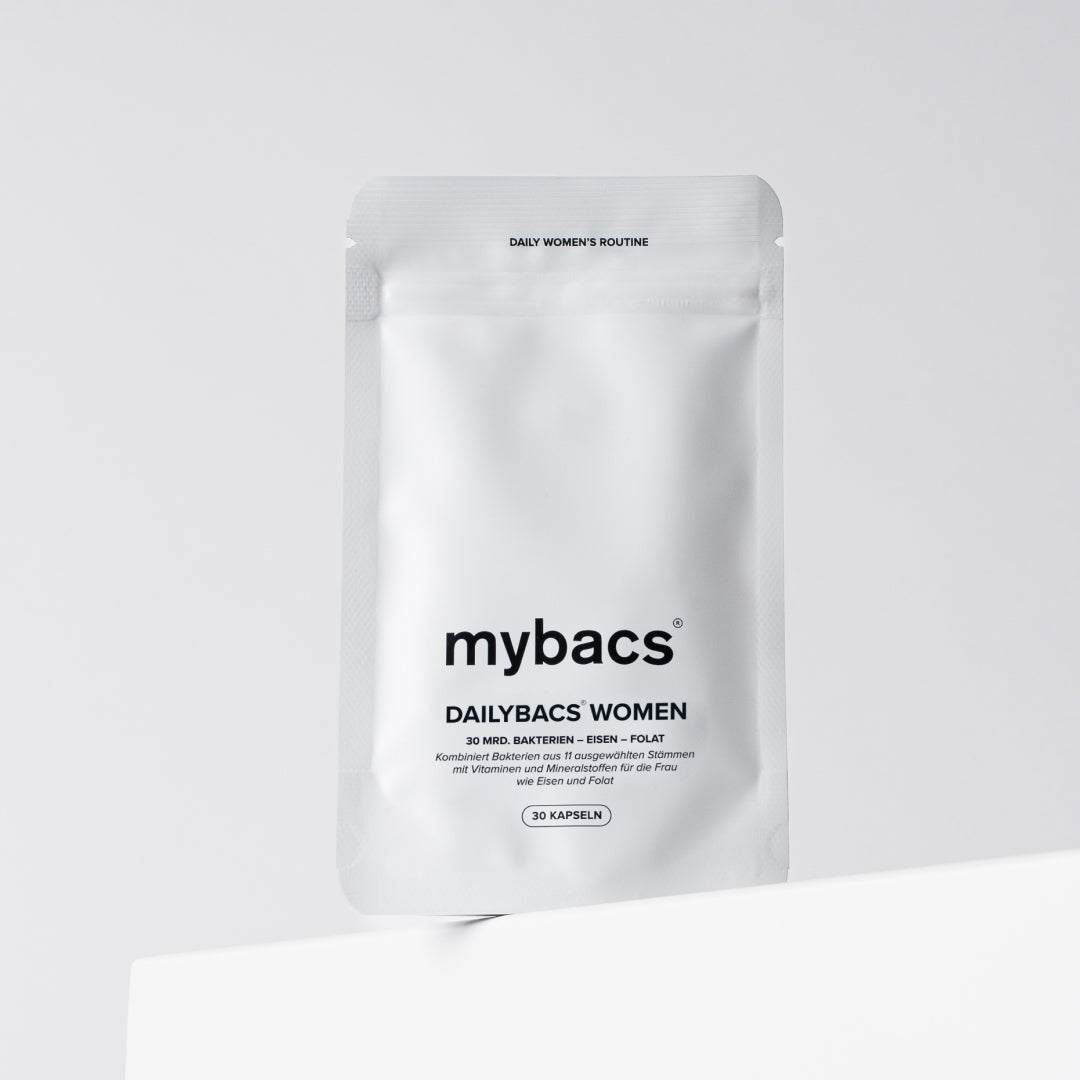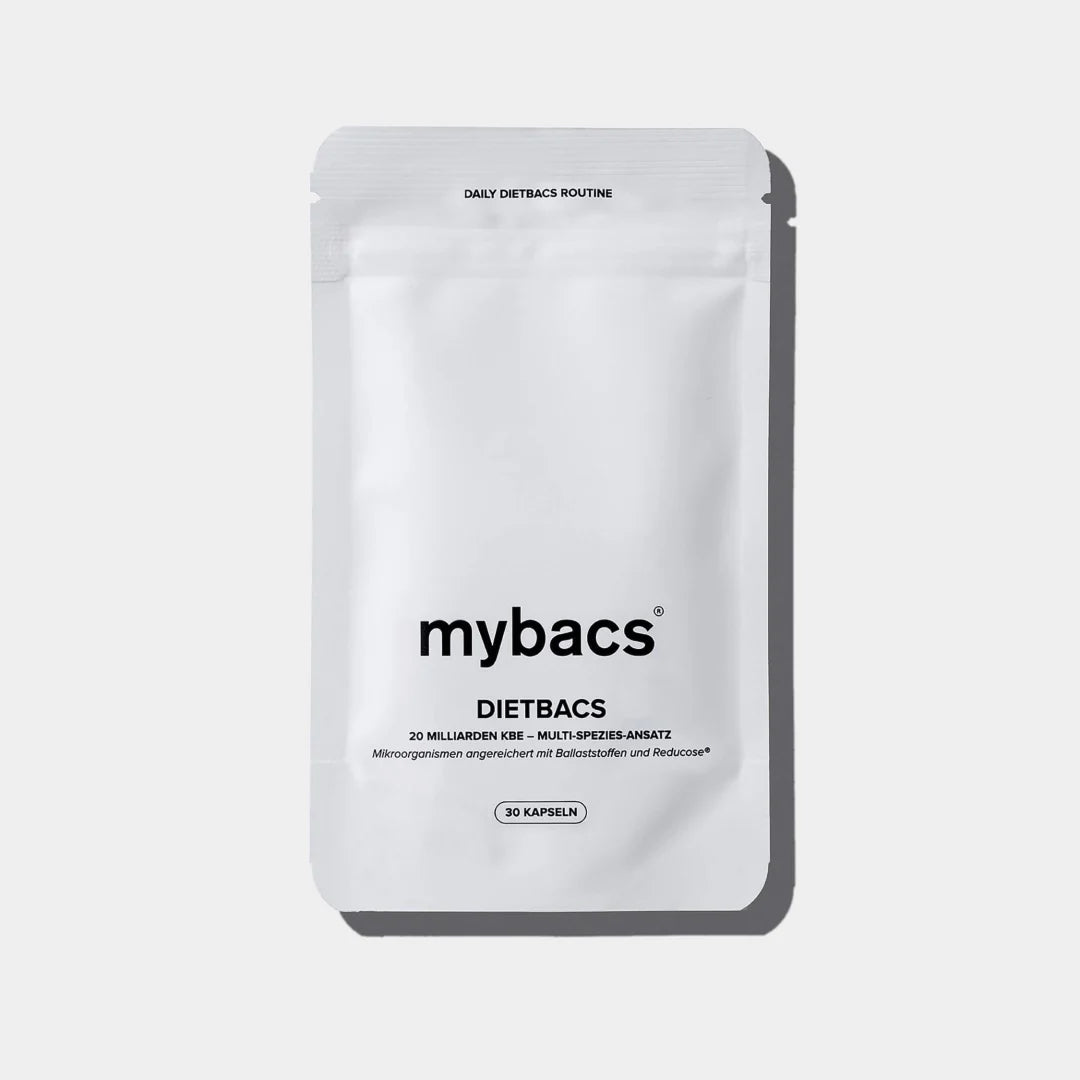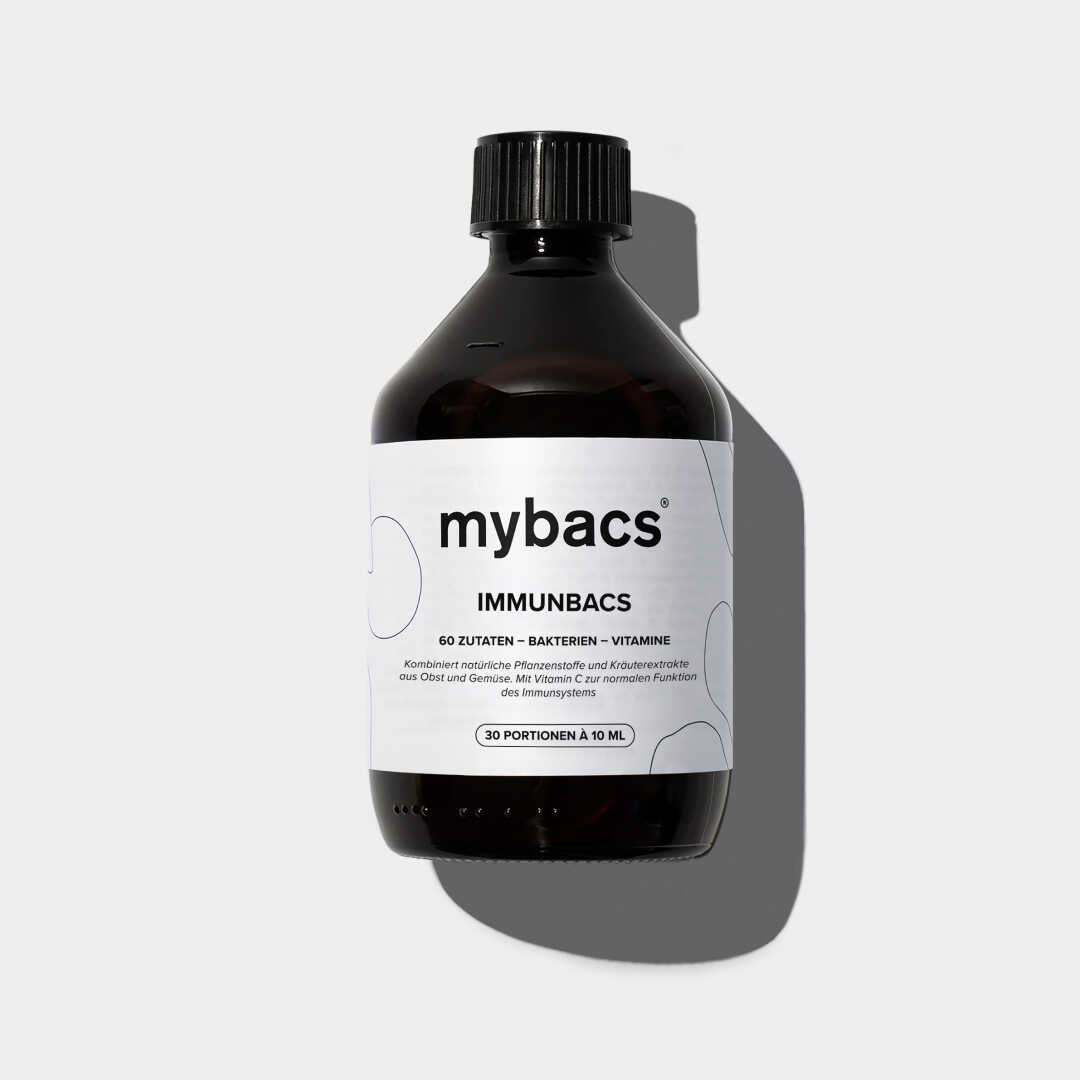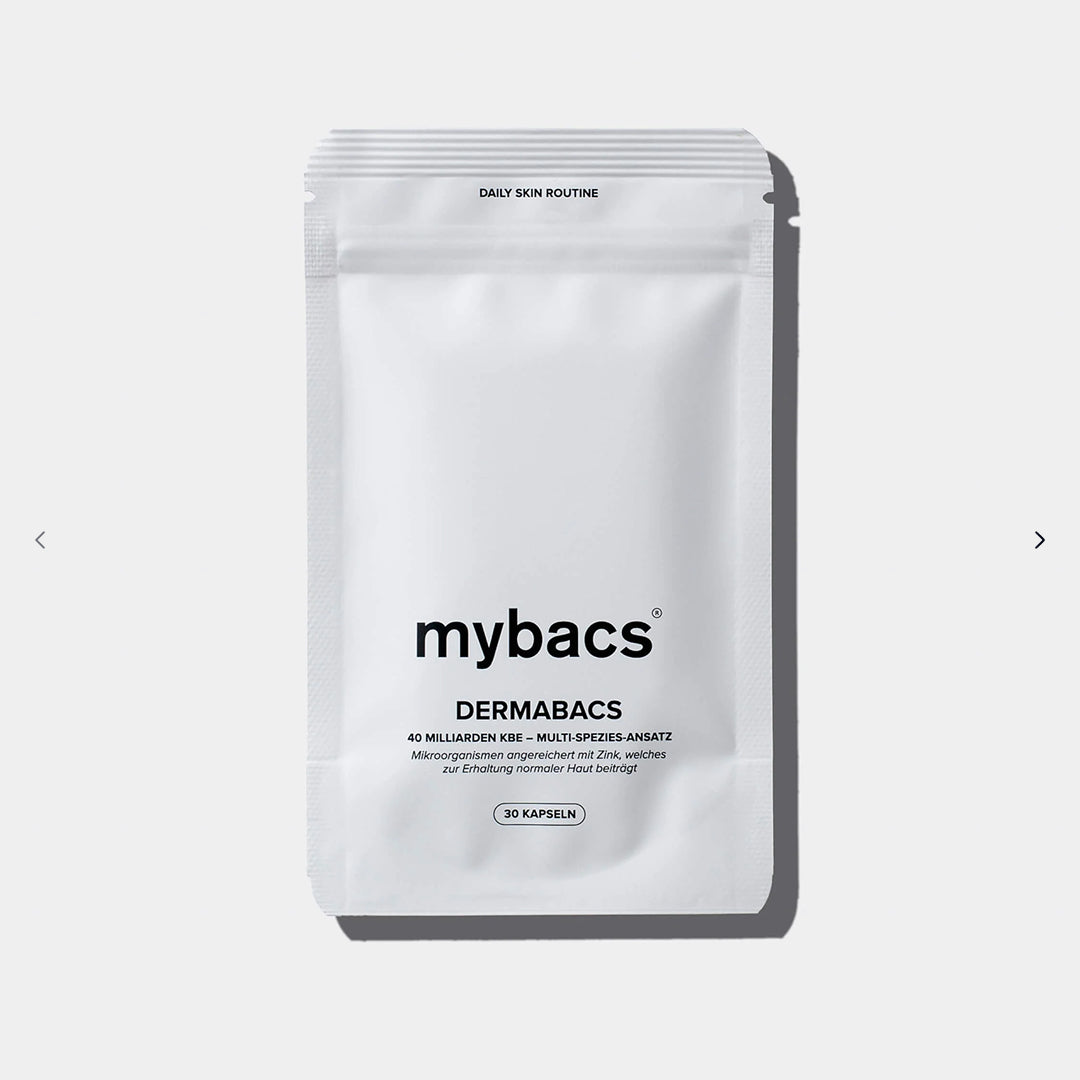A healthy intestinal flora is a prerequisite for your intestinal flora, your digestion and your immune system to function well. A healthy and balanced diet can play an important role in this. Fiber in particular serves as fuel for the intestines and helps them to keep moving. Lactic acid bacteria also have an immense influence on your digestion. So that you and your intestines can reach new heights, we have listed 6 nutritional rules for you here, because Happy Gut, Happy You!
6 Nutritional Rules for a Healthy Gut
-
Take your time to eat : the basis for healthy eating habits is to sit down and eat in peace - without major distractions and stress. Chewing well is also very important because it helps absorb nutrients better, gives the body the time it needs to feel full and, in any case, reduces stress. Eating calmly is almost like anti-stress therapy.
- Breakfast for champions : Digestion is most active in the morning. When the intestines are working hard, vitamins, proteins and fiber are better absorbed. That's why you benefit the most from a hearty breakfast. This is when the intestines can best process the good nutrients and use them as fuel for the day!
- Cravings in the evening : Treating yourself to a few extra snacks is completely normal and not a bad thing. However, the largest meal should be eaten in the morning/midday and for those with a sweet tooth, it is best to reach into the snack box straight after lunch. In the evening, our intestinal engines slow down and only start up again at around 3 a.m. It is therefore better not to snack during this rest period.
-
Drink mindfully : If you like to indulge in alcohol in the evening and indulge in a lot of feasting, it won't do you any harm to skip the alcohol and the late dinner every now and then. This will help regulate your hormone levels and give your intestines a little "time out".
-
Cooking correctly : In fact, the correct preparation is extremely important, even for healthy foods. Frying at too high a temperature can destroy all the good vitamins and nutrients. Deep-fried foods are also not particularly good for the intestines. The rule here is: everyone wants to be treated gently, including your intestines and the good, nutrient-rich vegetables!
- Drink up : Drinking enough is the key to a healthy body and good skin! But that doesn't mean soft drinks or their diet versions. Water and unsweetened teas are the absolute frontrunners here!
In addition to these important basics, there are of course also plenty of tips on the foods and nutrients that your gut particularly likes or those that should only be consumed in moderation! Above all, variety is absolutely essential for your gut flora. You can find out what the rules are here:
Rules for Food and Nutrients
Meat:
Studies have found that daily consumption of red meat, such as pork, beef or lamb, leads to an increased risk of colon cancer compared to regular consumption of white meat such as turkey or chicken. Some even say that the risk is increased by up to 2.5 times. Meat is an excellent source of protein, because with just 40g we can cover our daily protein requirement, which is particularly important for muscles, organs and bones. Nevertheless, meat can contain saturated fatty acids as well as amino acids. Alternatives to meat are legumes, grains and soy, because these foods are great sources of protein!
fiber
Dietary fiber is particularly important for the intestinal flora and digestion. We will explain why here. The digestive enzymes that are responsible for breaking down the building blocks of food are actually not able to break down dietary fiber. However, other bacteria in our intestines are real fans of this dietary fiber and even depend on it. If the dietary fiber arrives in the large intestine undigested, our beneficial intestinal bacteria, i.e. probiotics , are responsible for utilizing it. Dietary fiber is like food for probiotics, so that they feel comfortable in our intestines and can multiply. On average, you should consume around 30g of dietary fiber a day. This is found in whole grain products, fruit and vegetables. Oligofructose and resistant starches are also valuable sources of energy for the intestinal bacteria that produce butyric acid (butyrate, the salt of butyric acid, is an important fuel for intestinal bacteria).
Fat
When it comes to fats, the source and the amount are crucial. The rule is: less is more. If you want to provide your body with good fats, you should mainly eat vegetable fats. These include avocados, olives, nuts and linseed. But animal products also contain good omega-3 fatty acids, such as cold-water fish. Omega-3 fatty acids are unsaturated fatty acids, which are healthy and essential in small quantities. Our bodies cannot produce them independently. Omega-3 fatty acids improve blood flow, inhibit blood clotting, have an anti-inflammatory effect and can lower blood pressure. But if you consume too much fat, especially saturated fatty acids, you tend to be overweight. Being overweight has a negative effect on the entire organism, especially on the intestinal flora.
Sugar
Sugar in the form of short-chain carbohydrates (monosaccharides: “simple sugars” and disaccharides: “double sugars”) provide the body with energy incredibly quickly, or a rapid rise in blood sugar. However, they are also converted into fat very quickly. Therefore, it is important to pay attention to the amount consumed. Don’t forget: sugar is not necessarily bad! For example, fruit contains short-chain carbohydrates and as we know, fruit is an essential part of a healthy diet.
Happy Gut Food & Spices
probiotics
- Sauerkraut: raw or pickled contains lactic acid bacteria which support digestion
- Yoghurt: The lactic acid bacteria contained in yoghurt also have a positive effect on the intestinal flora
prebiotics
- Oligofructose and inulin: these are fiber components that are found in fruits, vegetables and grains. They serve as food for the probiotics and are therefore absolutely essential for their growth.
- Resistant starch: this substance is converted into butyric acid, which also serves as an important fuel for beneficial bacteria
- fiber (as mentioned above)
Miracle spices:
- Turmeric: stimulates intestinal juices and can thus prevent colon cancer
- Ginger: has a detoxifying and anti-inflammatory effect
- Chilli, oregano, thyme: all of these delicious spices have antibacterial properties. However, those who often suffer from heartburn and have a sensitive stomach should not consume too much of them! This could have a negative effect on circulation and digestion.
We hope we were able to give you a good explanation of the do's and don'ts! Strengthening your intestinal flora is actually not that difficult if you know what the good bacteria love and what things they shouldn't get too much of!





